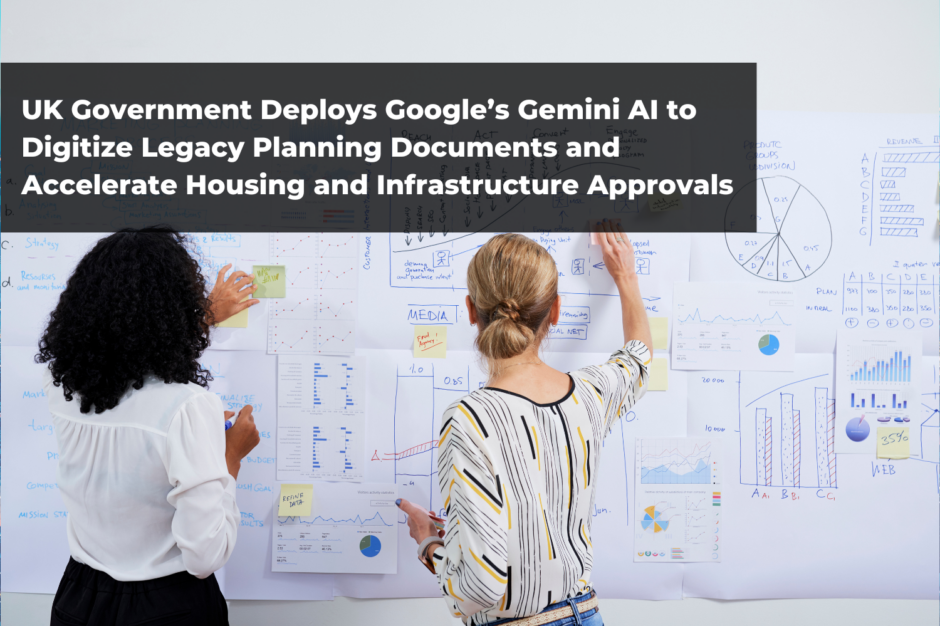The UK government is partnering with Google DeepMind’s Gemini AI model to revolutionize the planning application process across England through a new system called Extract. Designed and deployed by the UK Government’s AI Incubator team (i.AI), Extract leverages Gemini’s advanced multimodal reasoning capabilities to rapidly convert outdated, paper-based planning documents—often containing blurry maps and handwritten notes—into clean, structured digital data.
Historically, the planning process has been bogged down by manual data entry and document analysis. Every year, councils must process around 350,000 planning applications, many of which involve legacy paperwork that is time-consuming to interpret. On average, a single document can take a planning professional up to two hours to digitize and analyze. Extract can now reduce that process to just 40 seconds per document, dramatically improving speed and efficiency.
By automatically interpreting and extracting key information from old documents, Extract allows local councils to streamline planning workflows, make faster decisions, and modernize public-facing planning systems. This includes accelerating approvals for housing, infrastructure, and home improvements—an essential need in an economy striving for productivity and growth.
The AI-powered system is currently being piloted with four councils—Hillingdon, Westminster, Nuneaton and Bedworth, and Exeter—and is expected to be rolled out to all councils nationwide by Spring 2026. The government anticipates it will free up staff time for more strategic planning efforts, while also making the process more transparent and accessible to citizens.
At the core of Extract’s performance is Gemini’s multimodal intelligence: it can simultaneously understand and reason across text, images, handwriting, and geographical data. Key technical capabilities include:
-
Polygon Extraction: Gemini identifies visual boundaries and constraints (e.g., shaded areas on old maps), then uses tools like OpenCV and Segment Anything to extract the shapes digitally.
-
Georeferencing: It cross-references features like road names and landmarks with modern mapping tools (e.g., Ordnance Survey) to align legacy maps with current geospatial data.
-
Feature Mapping: With models like LoFTR, Extract matches old and new maps by detecting common landmarks, enabling precise coordinate conversions.
The initiative, unveiled during Prime Minister Keir Starmer’s speech at London Tech Week, represents a milestone in how generative AI can modernize government infrastructure. It showcases the UK’s ambition to lead in responsible AI adoption while solving real-world challenges at scale—especially in areas traditionally slow to digitize.


